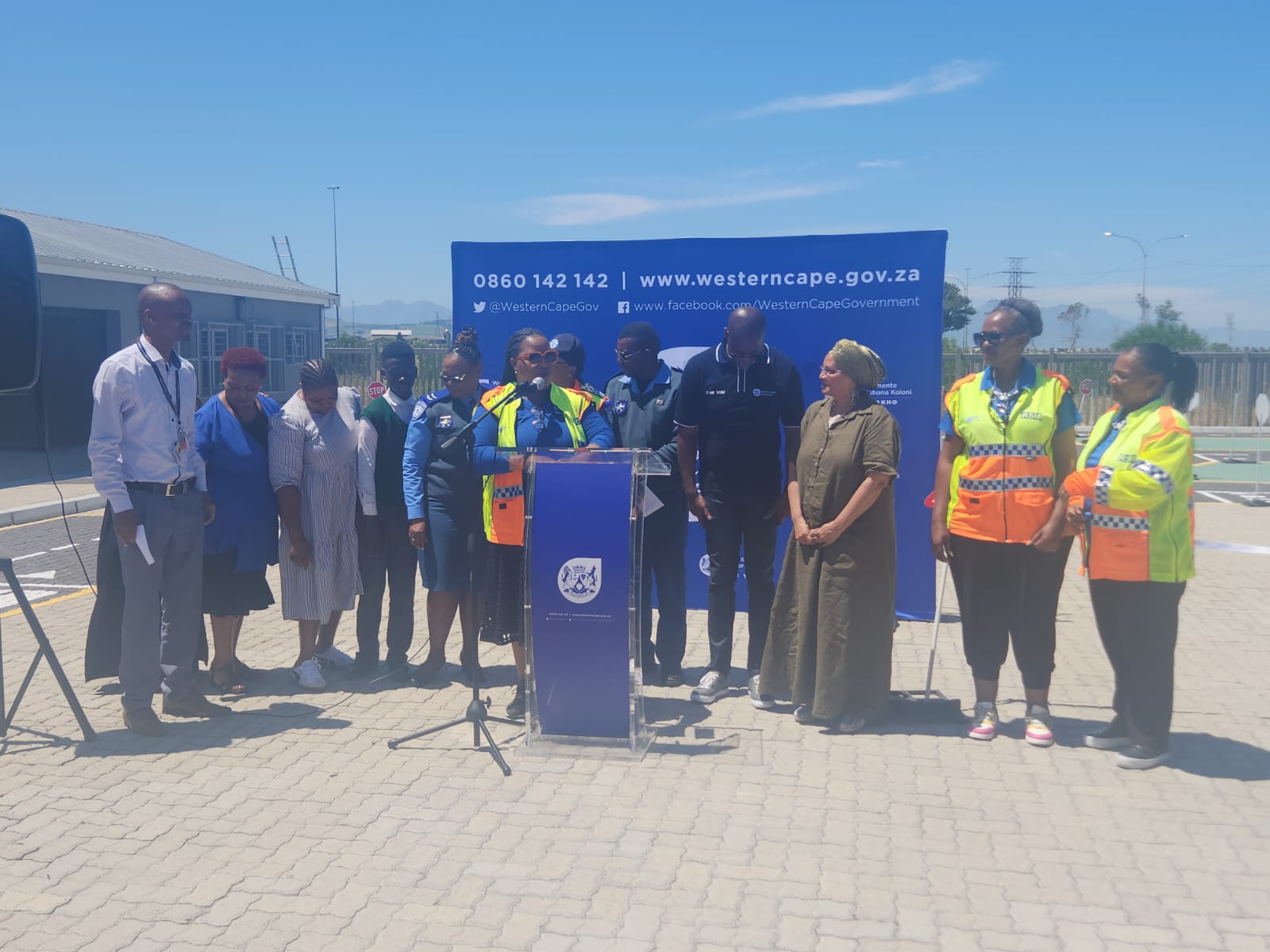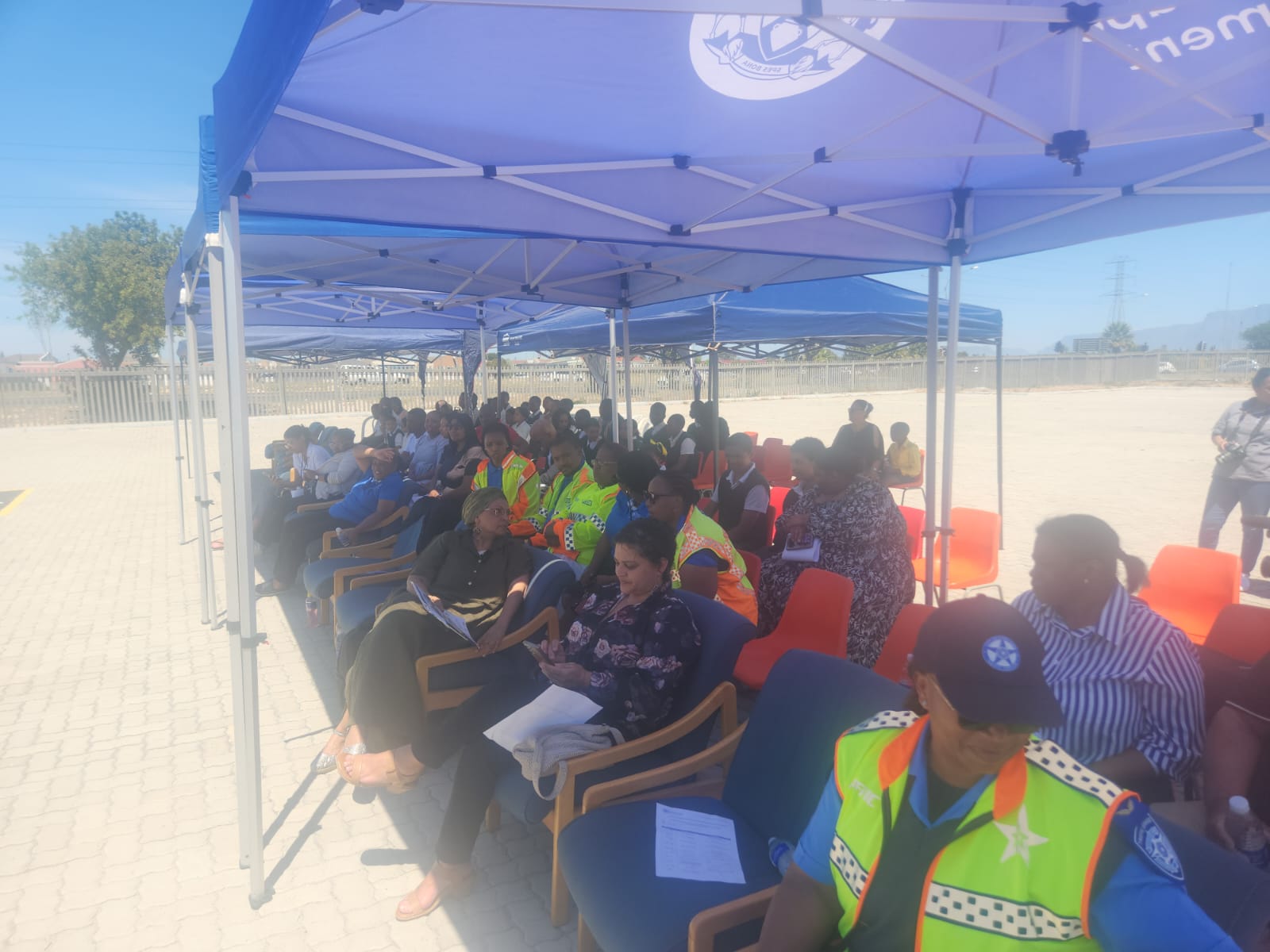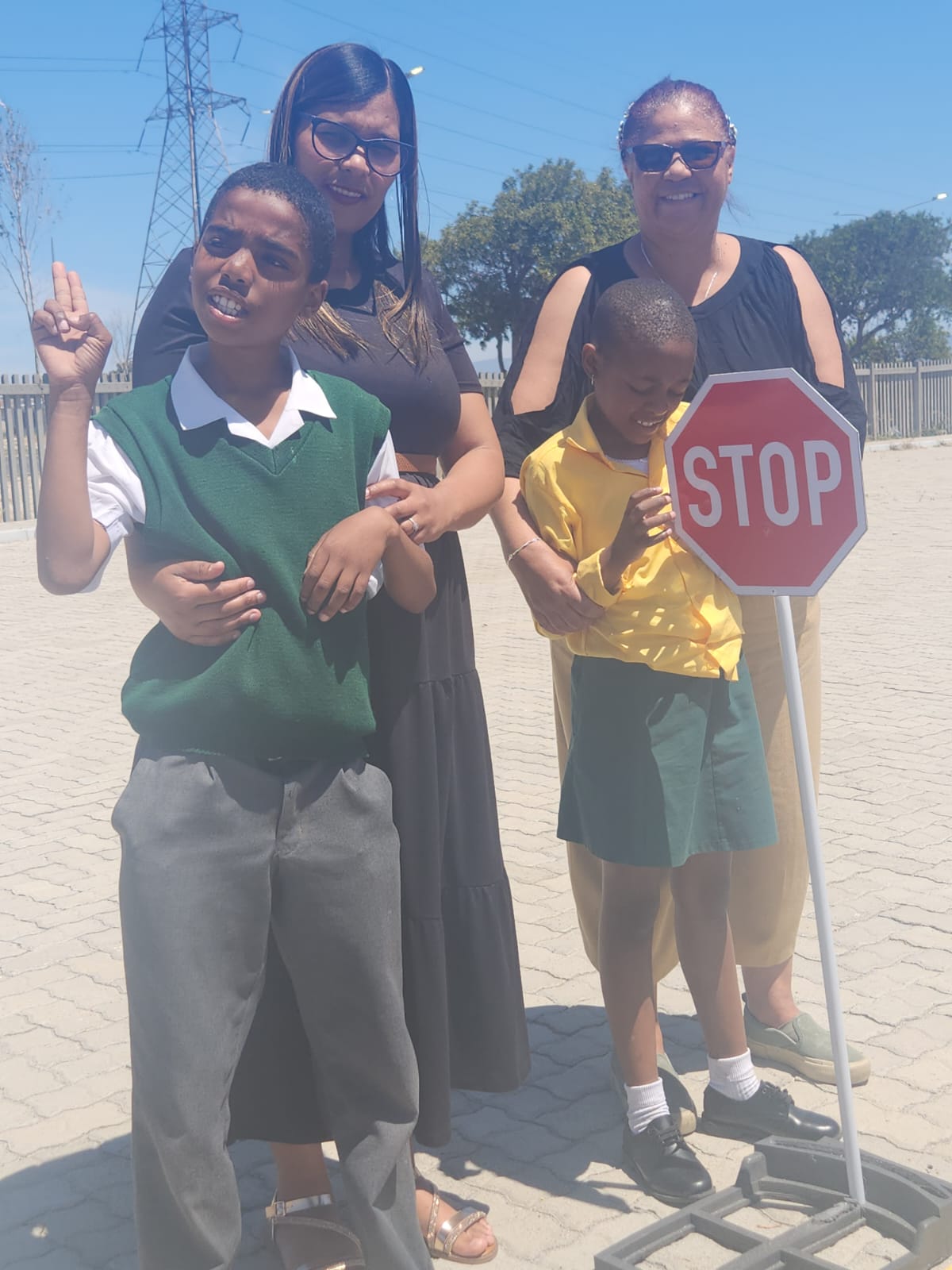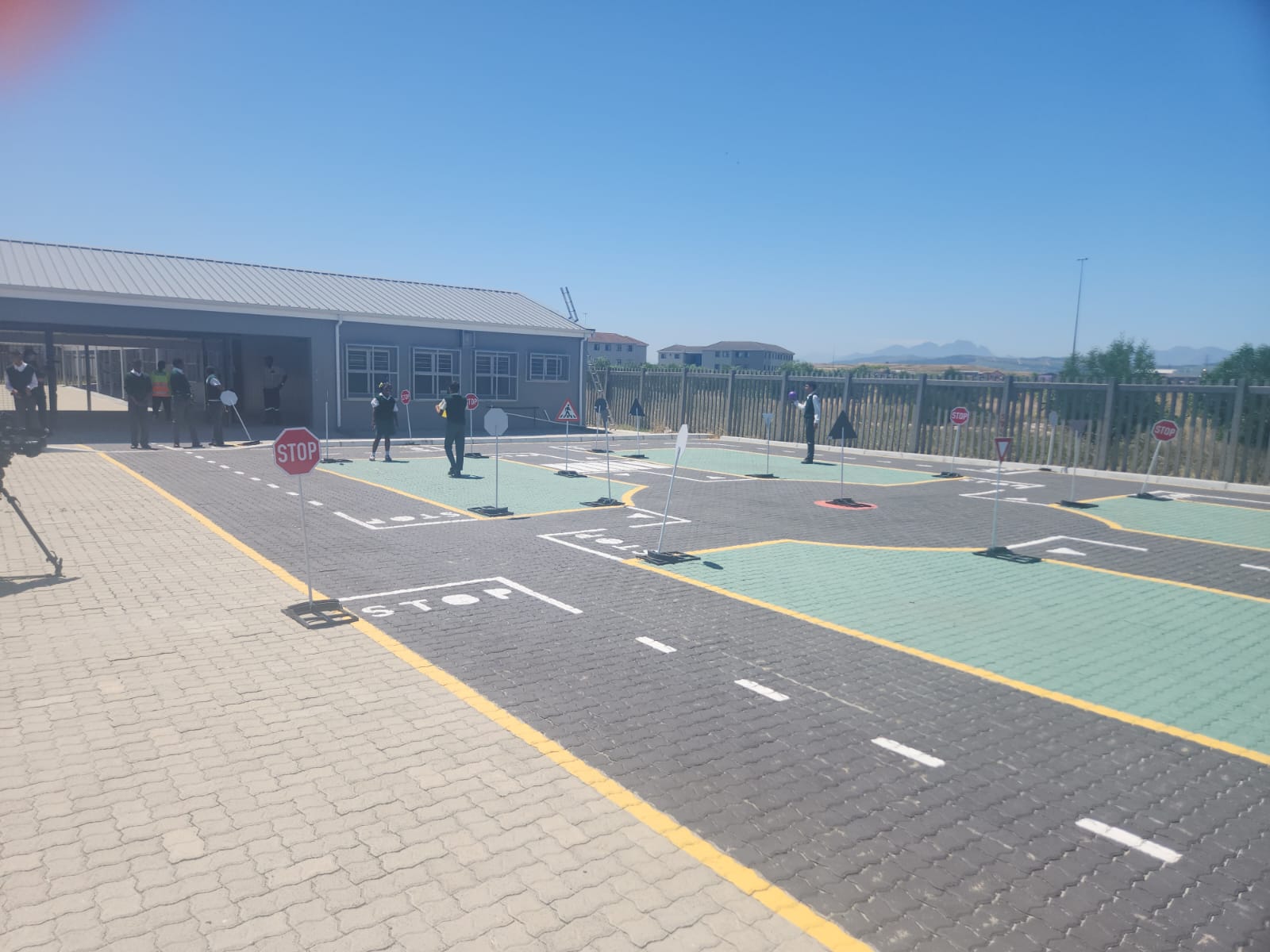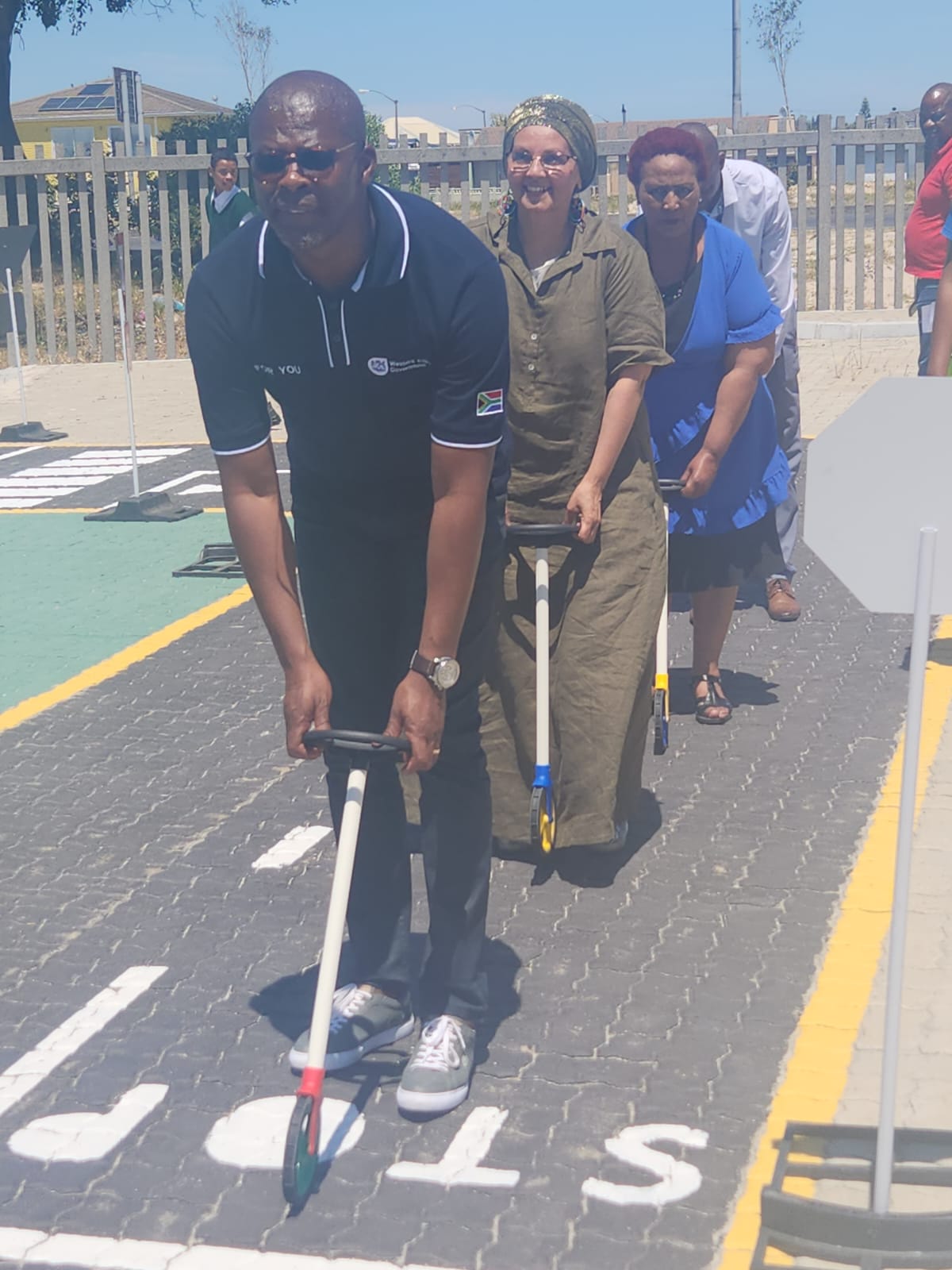WESTERN CAPE, South Africa – In a significant step towards enhancing road safety for vulnerable groups, ChildSafe South Africa, in collaboration with the Western Cape Mobility Department, has launched a pioneering road safety initiative specifically designed for children with special needs. This initiative introduces a Junior Traffic Training Centre (JTTC) at Oasis Special School in Belhar, marking the first JTTC in South Africa tailored to accommodate children with special needs.
The JTTC provides a safe, simulated environment where children can learn to navigate roads responsibly, recognizing and obeying road signs through interactive play. This initiative is crucial in addressing the alarming rate of pedestrian fatalities, which rose to 45.1% in 2023, with children aged 0-14 years accounting for 10.2% of these fatalities.
Understanding the Need
Every day, more than 600 children and young people lose their lives in preventable road crashes globally, with 97% of these deaths occurring in low- and middle-income countries. Road traffic injuries remain the leading cause of injury and death among children over the age of five worldwide. Despite a decline in overall crash and fatality statistics, pedestrian fatalities have increased, highlighting the need for targeted interventions.
A Focus on Special Needs
Children with special needs face unique challenges on the road. Their cognitive abilities, attention span, and sensory perceptions are often limited, making it difficult for them to make safe judgments in complex traffic situations. The JTTC at Oasis Special School is specifically adapted to address these challenges, providing a controlled environment where children can learn essential road safety skills without exposure to real-life dangers.
This initiative underscores the importance of inclusivity and equality, ensuring that all children, regardless of their abilities, have access to vital road safety education. By mainstreaming these efforts, the program promotes a more inclusive society where every child is given the opportunity to learn and thrive in a safe environment.
Voices from the Initiative
ChildSafe Spokesperson and Executive Director Zaitoon Rabaney emphasised the urgency of prioritising children’s safety on roads. She stated, “The need to prioritise the safety and well-being of our children on our roads is urgent. In South Africa, we lose far too many young lives to preventable road crashes, and it is our collective responsibility to act.”
Rabaney also highlighted the organisation’s advocacy for a 30km/h speed restriction around schools and environmental modifications to encourage slower driving speeds in these areas. “Equipping our children and their families with the necessary knowledge and skills to navigate roads safely is paramount,” she concluded.
Willie van der Merwe, Acting Chief Director of Traffic Management at the Western Cape Mobility Department, noted that more than 53% of all road fatalities are pedestrians. The government aims to reduce speed limits in high pedestrian areas, such as schools, from 60km/h to 30km/h.
A Model for the Future
The Western Cape is currently the only province in the country where the JTTC program is being run, setting a precedent for other regions to follow. This initiative aims to reduce pedestrian fatalities and foster a culture of road safety from a young age.
Looking Ahead
ChildSafe South Africa has intensified its advocacy efforts for road safety and the speed restriction of 30km/h around schools at a national policy level. The organization recently participated in the National Strategy for Accelerated Action for Adolescents and Children, hosted by the Presidency and Department of Social Development in October.
ChildSafe South Africa and the Western Cape Mobility Department are taking significant steps towards a safer future for all children by educating young pedestrians and advocating for safer road environments.


